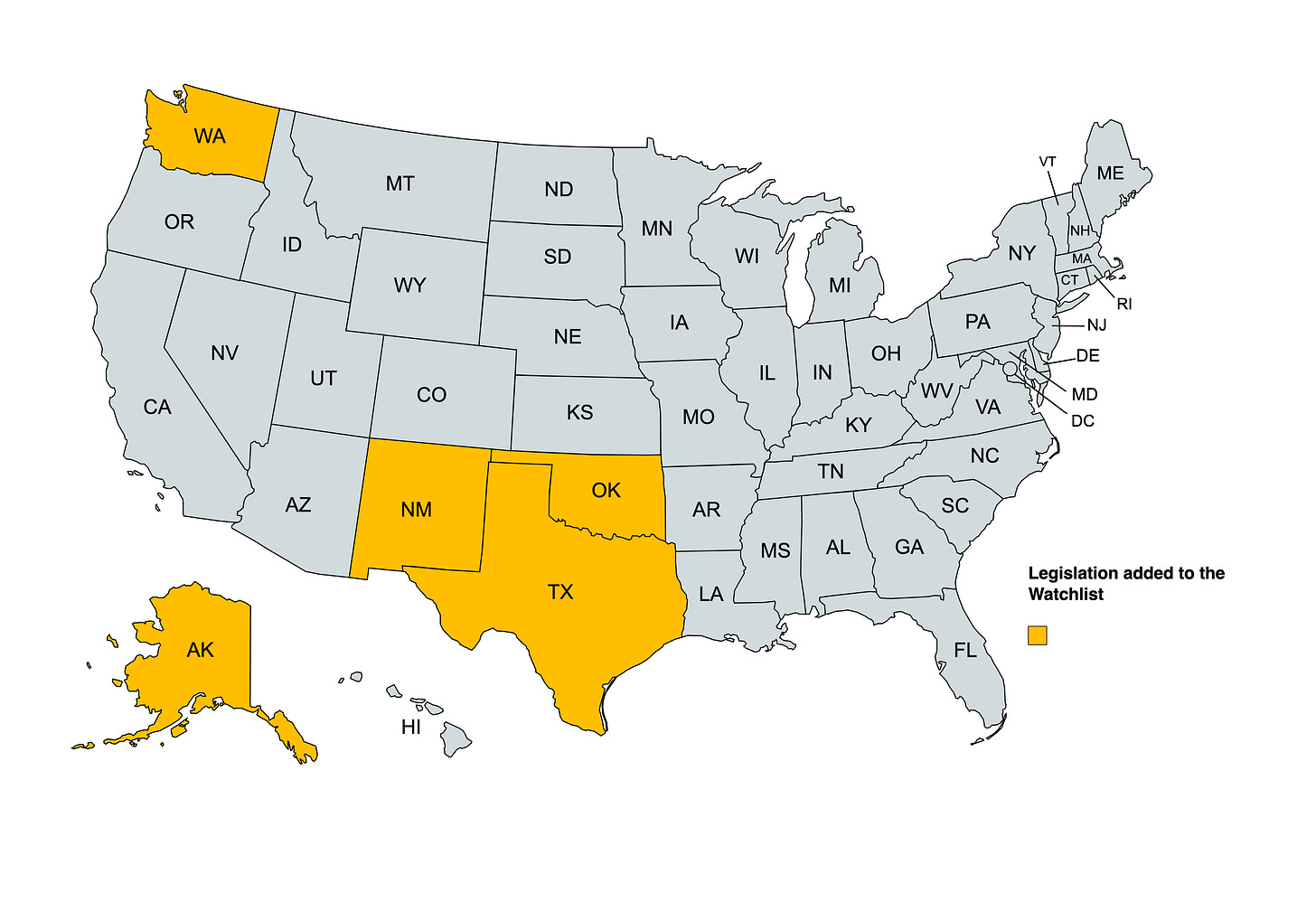Welcome back to the Hotlist Watchlist— a roundup of education legislation to watch closely this week.
Some things are at the top; this week’s bills relate mainly to teacher salary and instructional time.
While some research tells us that increasing teacher pay may attract higher-quality candidates and improve teacher retention, it is imperative that states investing in teacher professional learning and salary increases also incorporate measurement and evaluation into their theory of action.
Read more about how teacher residencies can support retention.
Similarly, there are many gray areas regarding the value of adding seat time. While a systematic literature review on the relationship between instructional time and academic achievement found that adding time can increase student achievement, the benefits depend on how and for whom the time is added. Added school time can sometimes be lost to transitions or administrative duties. While states should consider adding more instructional time, this policy functions as an axe, not a scalpel. It is up to school districts to ensure that there is increased quality and decreased time loss.
Read about a Washington bill that will reduce instructional time with highly-qualified staff.
FEATURED LEGISLATION
New Mexico House Bill 130 aims to increase students' time in school. The bill requires at least 1,140 hours of class time per school year for students, an increase from the current minimum of 990 hours for elementary and 1,080 hours for secondary schools. While this increase in instructional time can provide students with more opportunities for learning and enrichment, some argue that improving educational outcomes requires more than just increasing the number of hours students spend in school. In addition to increasing student seat time, the bill also requires increased professional work hours for teachers that can be used for professional development and planning.
Oklahoma Senate Bill 482 aims to establish a minimum salary schedule for teachers in the state. The bill would set the minimum teacher pay at just under $40,000 and establish a pay scale for educators, with higher pay for those with master’s degrees or doctorates. The bill aims to improve Oklahoma teachers' compensation and keep pace with other states. The bill, carrying a price tag of $285 million per year, passed the Senate with a bipartisan vote of 41 to 1 and now goes to the House of Representatives.
Alaska House Bill 65 aims to increase the base per-student allocation used to fund schools across the state. Raising this amount, the bill could provide additional funding for schools and improve educational opportunities for students. The bill is headed to the state finance committee.
Washington Senate Bill 5054 aims to promote and facilitate more consistent professional learning time in schools and redefines “instructional hours” to include time spent with non-certified teachers. Proponents of the bill argue that professional learning communities boost morale and teacher collaboration, while opponents are concerned about lowered standards for instructional quality.
Texas Senate Bill 9 proposes changes to teachers' rights, certification, and compensation. The bill will provide substantial pay raises to teachers and increase funding for an incentive pay plan.
ICYMI
EdAllies released their second podcast summarizing the latest trends in Minnesota legislation. Margaret Sullivan and Matt Shaver discuss the combative atmosphere of the legislature and how to advocate for suspension and special education funding reform.
Dr. Christine M. T. Pitts serves as Senior Policy Fellow at the Center on Reinventing Public Education, where she oversees policy leadership and external affairs. With a background as a teacher and researcher, Christine previously led research and evaluation for Portland Public Schools and served as Policy Advisor at NWEA, where she oversaw state and federal policy to advance equity and innovation in educational assessment. Follow her on LinkedIn, Instagram, and Twitter for updates.







